
[ad_1]
PETA’s taking on the animal overpopulation and homelessness crises one city at a time, and in March, we “fixed” a total of 499 companion cats and dogs in Chichimilá and Cancún, Mexico!
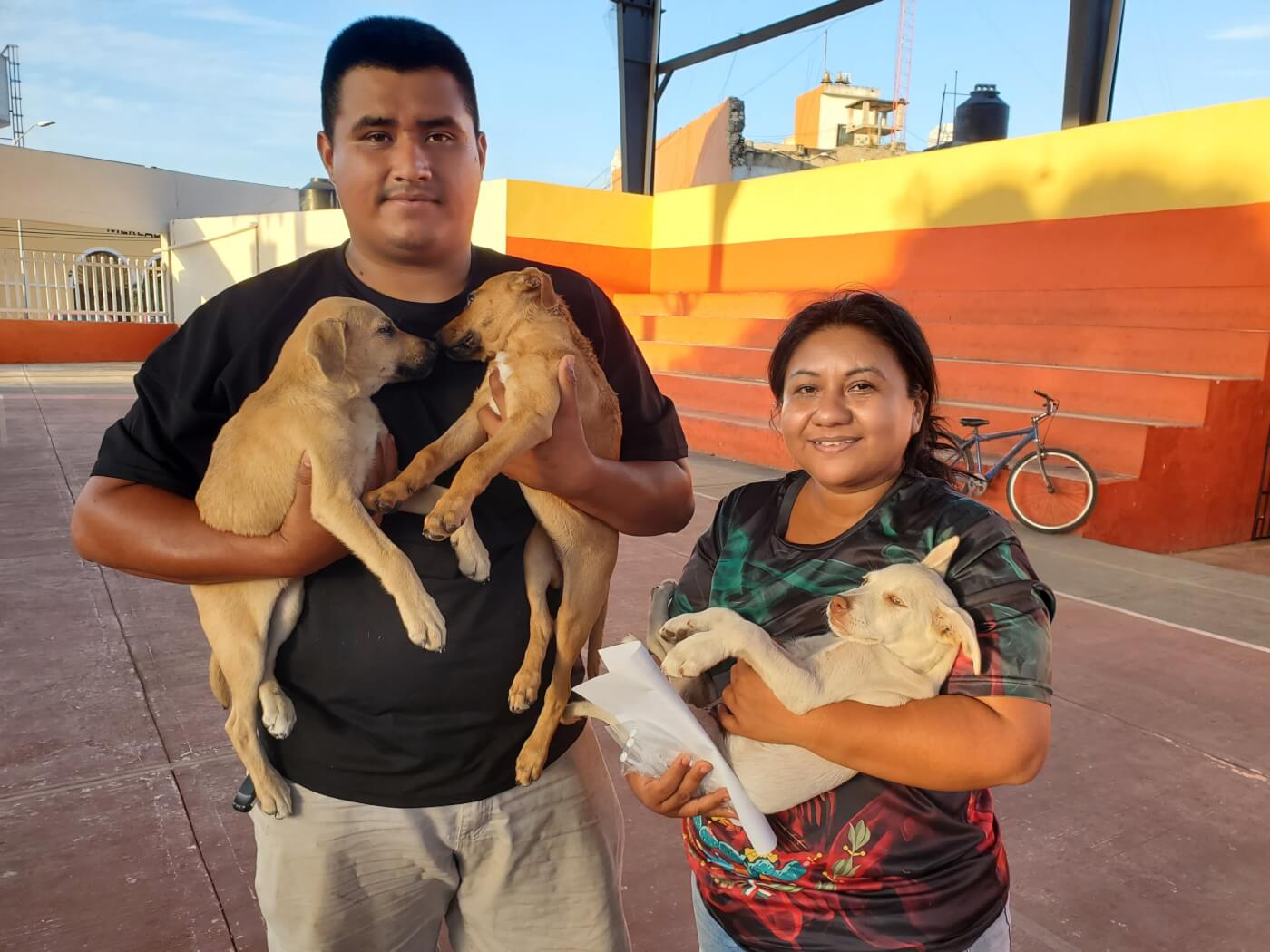
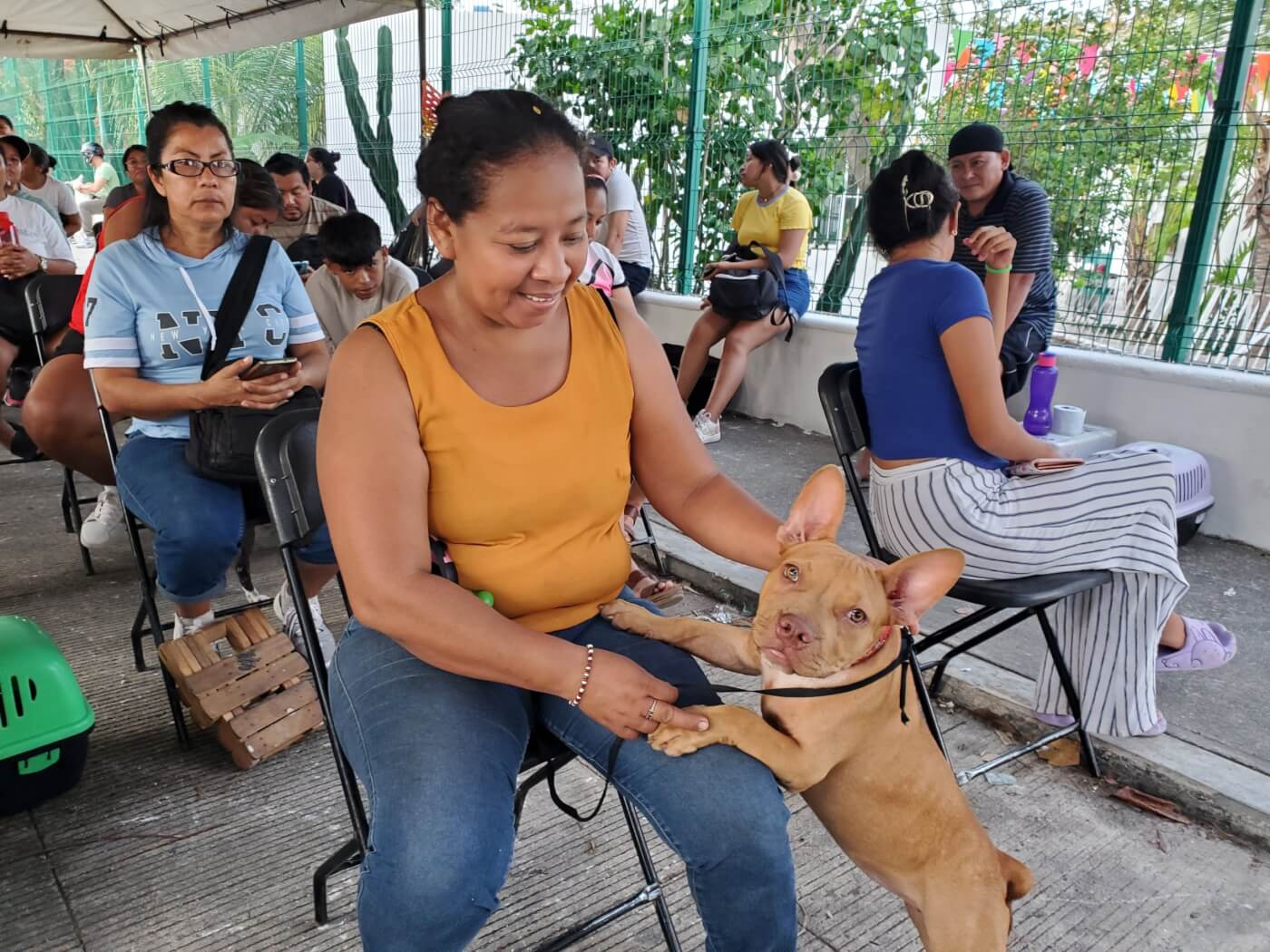
Mexico has the largest population of stray dogs in Latin America, with more than 18 million countrywide. It’s been estimated that a staggering 79% of dogs and cats in the country are homeless.
Homeless cats and dogs struggle to survive on the streets, where they’re vulnerable to traffic, weather extremes, attacks from other animals or cruel humans, diseases, infections, and other deadly dangers. Our spay/neuter clinics are vital resources for combatting this ongoing crisis by preventing more animals from being born into a world that can’t support them.
See how we helped underserved guardians and their companions in Mexico with two successful spay-a-thons.
PETA Sterilizes 499 Companion Cats and Dogs in Chichimilá and Cancún
In Chichimilá and Cancún, Mexico, PETA teamed up with talented veterinarians from all over the country to fix animal companions for free. Scores of cats and dogs rolled up in style—in milk crates, carts, and laundry bins—to both of our two-day spay/neuter clinics.
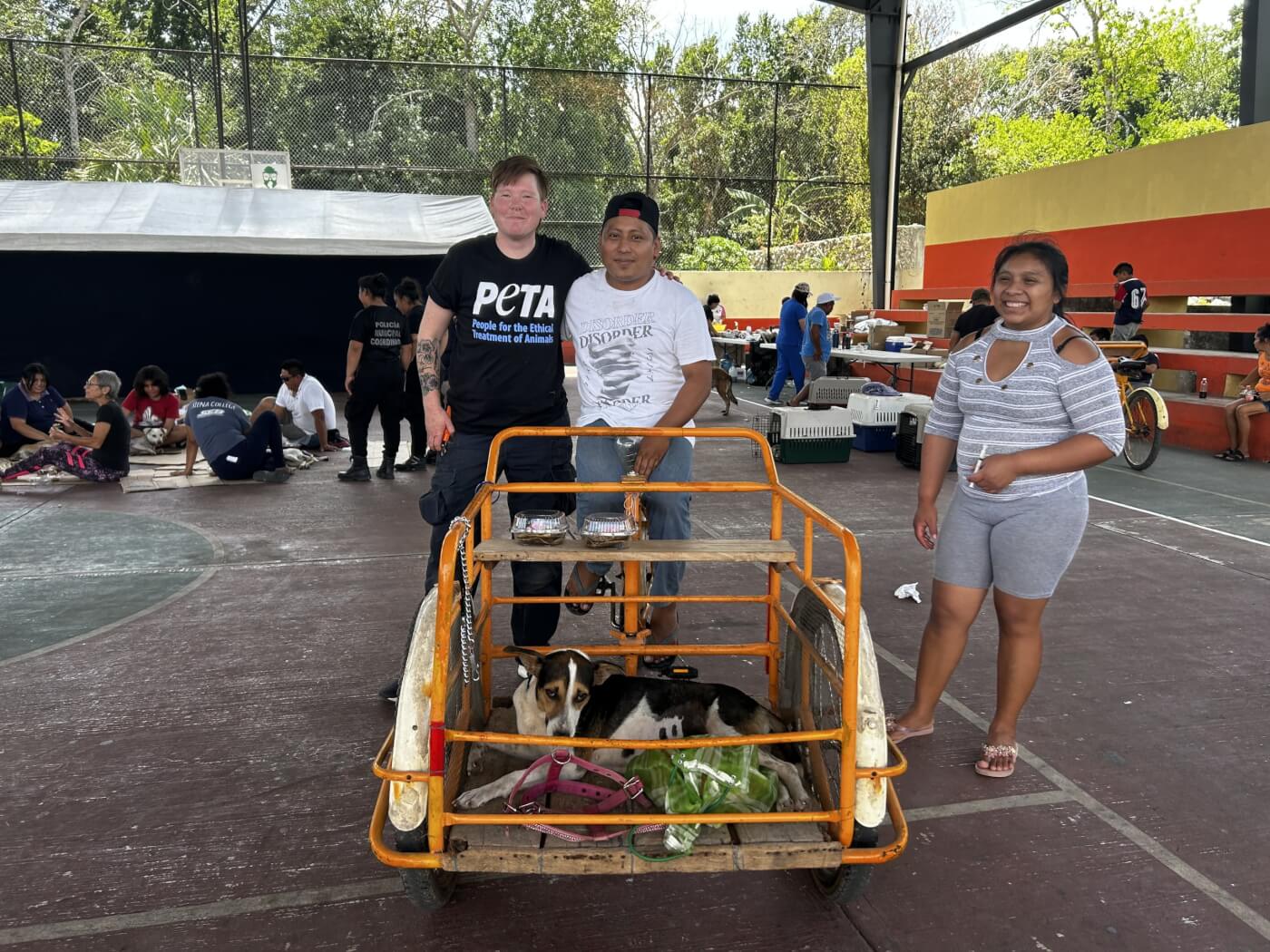
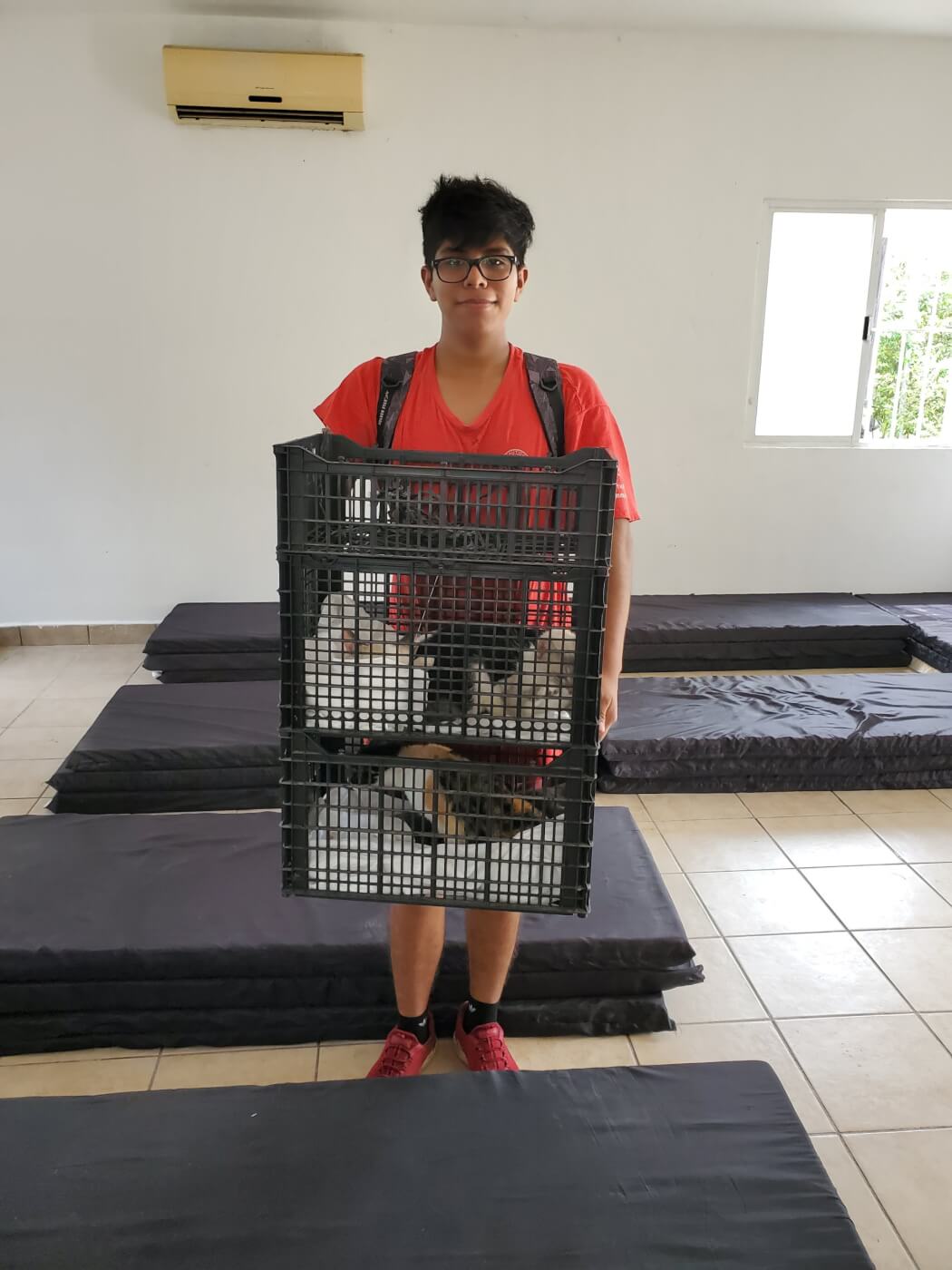
In the rural town of Chichimilá, the team sterilized 158 dogs and cats at no cost to their guardians. The crew, in collaboration with Chichimilá City Hall, set up the temporary spay/neuter clinic and helped inform community members about the needs of their animal companions. The town’s mayor even stopped by on both days, expressing his gratitude for our trailblazing work.
Next, the team headed over to Region 103, an underserved neighborhood in Cancún, for another two-day clinic, during which they sterilized 341 dogs and cats.
In just one year, an unspayed cat can give birth to 12 kittens and an unspayed dog can give birth to 16 puppies—which means that PETA’s clinics could prevent the births of more than 6,000 animals in the next 12 months alone!
Our staff also treated dogs for mange and eye infections, provided flea and tick prevention as well as deworming medication; clipped nails and shaved matted dogs; provided cats and dogs with collars; advised guardians on the proper treatment of various ailments; counseled guardians on proper animal care, including positive reinforcement and adequate living environments; and sterilized homeless dogs.
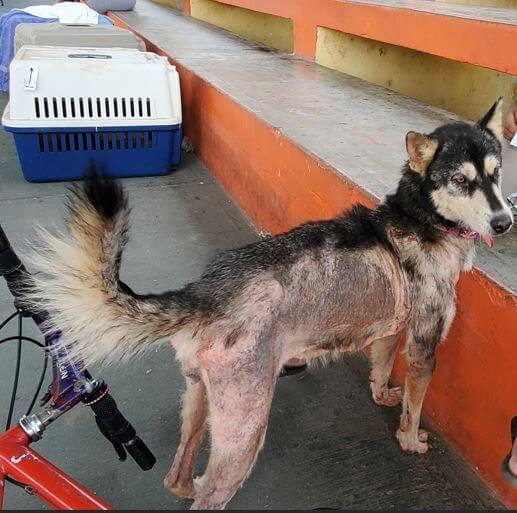
In addition to the successful spay/neuter clinics, our fieldworkers visited the impoverished neighborhood of Avante in Cancún, where they gave out companion animal food, applied flea prevention medication to cats and dogs, fitted dogs with collars, and set up doghouses for those who had little to no shelter at all. They also fed homeless dogs.
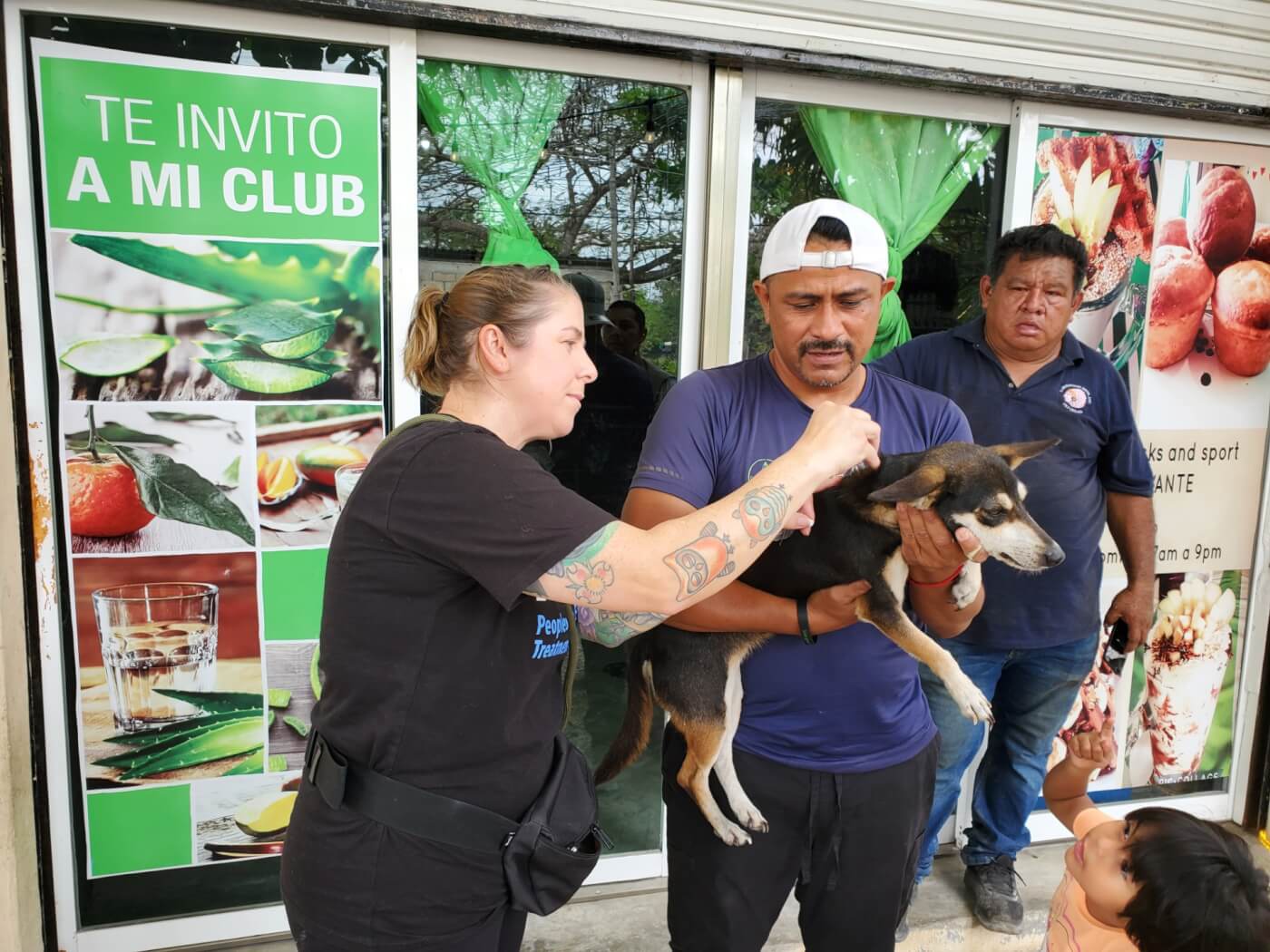
Help PETA Continue Our Important Work
Funding for temporary sterilization clinics like PETA’s in Chichimilá and Cancún helps limit the suffering of animals for generations, as fewer unsterilized dogs and cats mean fewer animals will be born into communities that don’t have the resources to care for them. Please, help us limit the continued suffering of homeless and vulnerable animals:
Support PETA’s Global Compassion Fund
[ad_2]
Source link

Leave a Reply